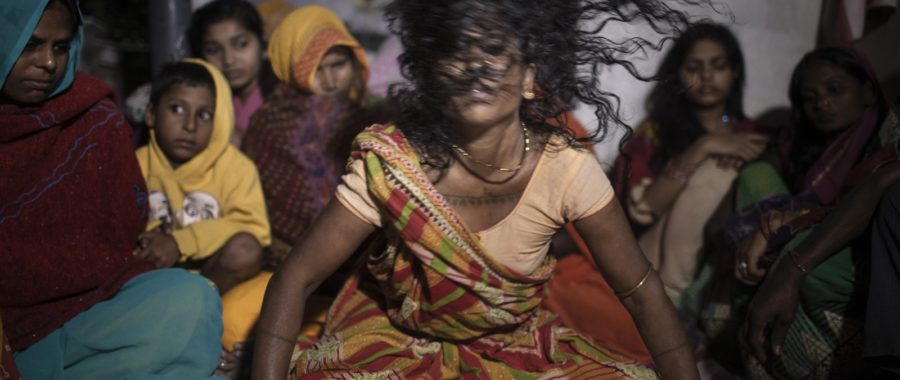
epa06332558 (01/20) Marani Devi Chaudhary (C), aged 40, performs a ritual in front of shaman Paltan Yadav (unseen) at her home in Rajaur village in Dhanusha district, Nepal, 02 November 2017. The shaman identified Marani Devi to be possessed by their lineage god who was dissatisfied by their worship is thought by the family to have caused them misfortune and is even feared lead to their death. Therefore Marani Devi spent 1,500 USD to perform a healing ritual at the Ghost Festival held at the banks of Kamala River in Dhanusha district two days later. Every family or community has their own sacred god, called 'Kuldevta’ in Nepali which means family deity or lineage god. Only family members or people within communities of the same caste can worship to the deity. They have their own rules and regulations of worship which varies from one family and community to another. Being unable to follow the rules and regulations or carry out worship is believed to cause misfortune. EPA/NARENDRA SHRESTHA ATTENTION: For the full PHOTO ESSAY text please see Advisory Notice epa06332557 Dostawca: PAP/EPA.
Nepal: festiwal duchów [GALERIA]
Nad brzegiem rzeki Kamala w Nepalu, przyprowadzono kobietę, która według lokalnej ludności jest opętana przez złego ducha. Lokalny szaman dokonuje „leczenia” na kobiecie. Wszystko wnikliwie obserwują Nepalczycy. Festiwal duchów to wielowiekowe święto kultury organizowane przy rzece Kamala, które znajduje się 218,2 km od stolicy – Katmandu. Każdego roku, w dzień pełni księżyca w listopadzie, tysiące ludzi, głównie z dystryktu Dhanusha we wschodnim Nepalu i sąsiednich Indiach, głównie należących do niższej kasty społeczności Dalitów, gromadzą się przy świętej rzece kultywując swoje wierzenia.
- epa06332558 (01/20) Marani Devi Chaudhary (C), aged 40, performs a ritual in front of shaman Paltan Yadav (unseen) at her home in Rajaur village in Dhanusha district, Nepal, 02 November 2017. The shaman identified Marani Devi to be possessed by their lineage god who was dissatisfied by their worship is thought by the family to have caused them misfortune and is even feared lead to their death. Therefore Marani Devi spent 1,500 USD to perform a healing ritual at the Ghost Festival held at the banks of Kamala River in Dhanusha district two days later. Every family or community has their own sacred god, called 'Kuldevta’ in Nepali which means family deity or lineage god. Only family members or people within communities of the same caste can worship to the deity. They have their own rules and regulations of worship which varies from one family and community to another. Being unable to follow the rules and regulations or carry out worship is believed to cause misfortune. EPA/NARENDRA SHRESTHA ATTENTION: For the full PHOTO ESSAY text please see Advisory Notice epa06332557 Dostawca: PAP/EPA.
- epa06332559 (02/20) Marani Devi Chaudhary, aged 40, performs a ritual in front of a picture of her lineage god (or family deity) at her home in Rajaur village in Dhanusha district, Nepal, 02 November 2017. A shaman named Paltan Yadav identified Marani Devi to be possessed by their lineage god who was dissatisfied by their worship is thought by the family to have caused them misfortune and is even feared lead to their death. Therefore Marani Devi spent 1,500 USD to perform a healing ritual at the Ghost Festival held at the banks of Kamala River in Dhanusha district two days later. Every family or community has their own sacred god, called 'Kuldevta’ in Nepali which means family deity or lineage god. Only family members or people within communities of the same caste can worship to the deity. They have their own rules and regulations of worship which varies from one family and community to another. Being unable to follow the rules and regulations or carry out worship is believed to cause misfortune. EPA/NARENDRA SHRESTHA ATTENTION: For the full PHOTO ESSAY text please see Advisory Notice epa06332557 Dostawca: PAP/EPA.
- epa06332560 (03/20) Marani Devi Chaudhary (R), aged 40, performs a ritual in front of shaman Paltan Yadav (unseen) at her home in Rajaur village in Dhanusha district, Nepal, 02 November 2017. The shaman identified Marani Devi to be possessed by their lineage god who was dissatisfied by their worship is thought by the family to have caused them misfortune and is even feared lead to their death. Therefore Marani Devi spent 1,500 USD to perform a healing ritual at the Ghost Festival held at the banks of Kamala River in Dhanusha district two days later. Every family or community has their own sacred god, called 'Kuldevta’ in Nepali which means family deity or lineage god. Only family members or people within communities of the same caste can worship to the deity. They have their own rules and regulations of worship which varies from one family and community to another. Being unable to follow the rules and regulations or carry out worship is believed to cause misfortune. EPA/NARENDRA SHRESTHA ATTENTION: For the full PHOTO ESSAY text please see Advisory Notice epa06332557 Dostawca: PAP/EPA.

- epa06332562 (05/20) A group of women, who believe that they are possessed by evil spirits, dance and chant on the eve of a full moon day, as they gather for the Ghost Festival at the banks of Kamala River in Dhanusha district, Nepal, 03 November 2017. The Ghost Festival is a centuries-old tradition celebrated every year on the full moon day of November. Thousands of people, mostly from Dhanusha District in eastern Nepal and neighboring India and belonging mainly to the lower caste Dalit community, flock to the holy river with deep-rooted, superstitious beliefs that something is wrong within their families or in their business because of evil spirits. Shamans perform rituals in an attempt to heal those believed to be possessed by evil spirits, claiming that only they can expel the unwanted possession. The festival is considered an extreme example of superstition in Nepal. EPA/NARENDRA SHRESTHA ATTENTION: For the full PHOTO ESSAY text please see Advisory Notice epa06332557 Dostawca: PAP/EPA.
- epa06332563 (06/20) A group of women, who believe that they are possessed by evil spirits, dance and chant mantras on the eve of a full moon day, as they gather for the Ghost Festival at the banks of Kamala River in Dhanusha district, Nepal, 03 November 2017. The Ghost Festival is a centuries-old tradition celebrated every year on the full moon day of November. Thousands of people, mostly from Dhanusha District in eastern Nepal and neighboring India and belonging mainly to the lower caste Dalit community, flock to the holy river with deep-rooted, superstitious beliefs that something is wrong within their families or in their business because of evil spirits. Shamans perform rituals in an attempt to heal those believed to be possessed by evil spirits, claiming that only they can expel the unwanted possession. The festival is considered an extreme example of superstition in Nepal. EPA/NARENDRA SHRESTHA ATTENTION: For the full PHOTO ESSAY text please see Advisory Notice epa06332557 Dostawca: PAP/EPA.
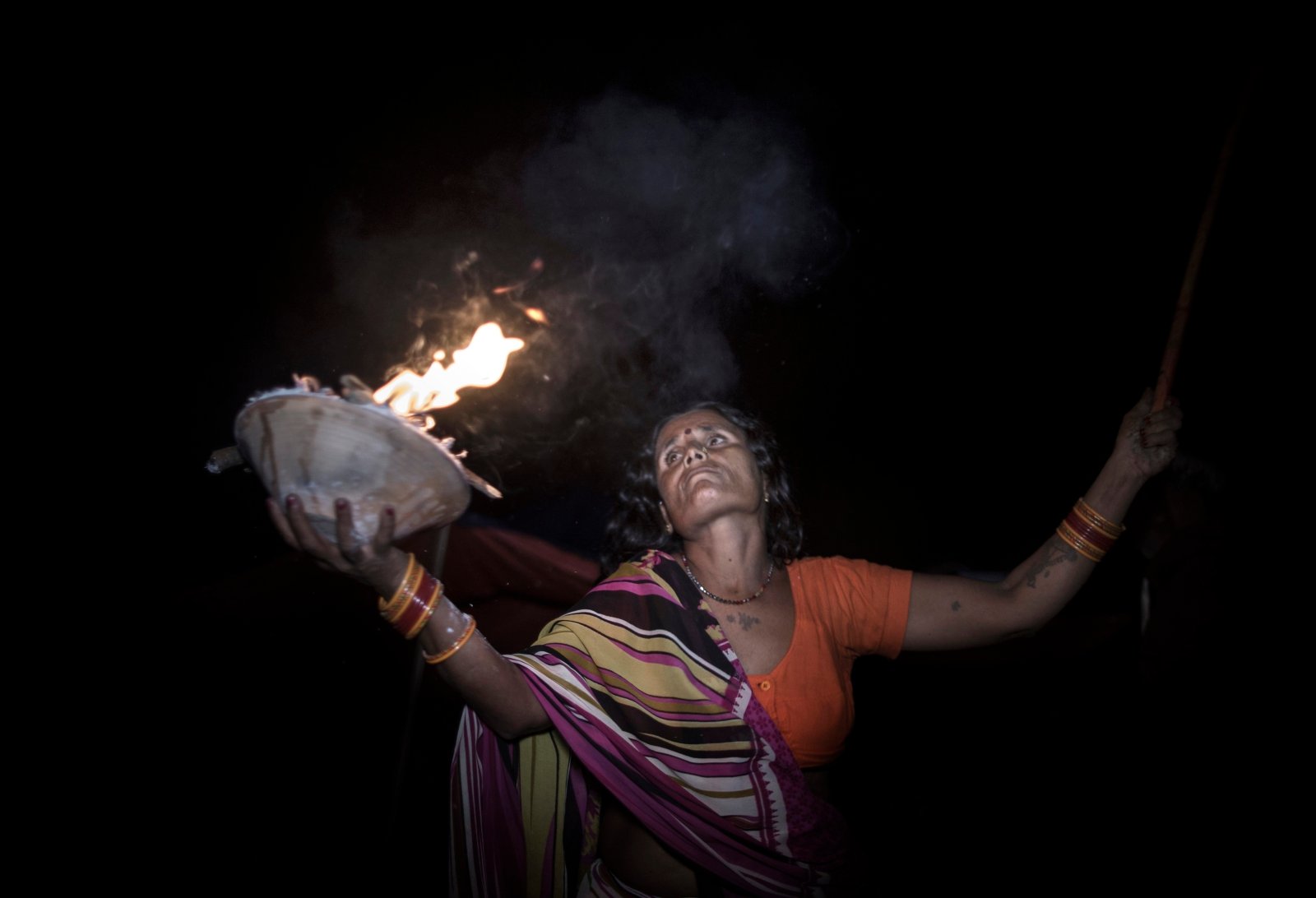
- epa06332565 (08/20) A woman takes a holy bath on the early morning of a full moon day during the Ghost Festival at Kamala River in Dhanusha district, Nepal, 04 November 2017. The Ghost Festival is a centuries-old tradition celebrated every year on the full moon day of November. Thousands of people, mostly from Dhanusha District in eastern Nepal and neighboring India and belonging mainly to the lower caste Dalit community, flock to the holy river with deep-rooted, superstitious beliefs that something is wrong within their families or in their business because of evil spirits. Shamans perform rituals in an attempt to heal those believed to be possessed by evil spirits, claiming that only they can expel the unwanted possession. The festival is considered an extreme example of superstition in Nepal. EPA/NARENDRA SHRESTHA ATTENTION: For the full PHOTO ESSAY text please see Advisory Notice epa06332557 Dostawca: PAP/EPA.
- epa06332566 (09/20) Paltan Mukhiya, aged 45, a shaman, looks on before performing a ritual on the eve of a full moon day, as pilgrims gather for the Ghost Festival at the banks of Kamala River in Dhanusha district, Nepal, 03 November 2017. The Ghost Festival is a centuries-old tradition celebrated every year on the full moon day of November. Thousands of people, mostly from Dhanusha District in eastern Nepal and neighboring India and belonging mainly to the lower caste Dalit community, flock to the holy river with deep-rooted, superstitious beliefs that something is wrong within their families or in their business because of evil spirits. Shamans perform rituals in an attempt to heal those believed to be possessed by evil spirits, claiming that only they can expel the unwanted possession. The festival is considered an extreme example of superstition in Nepal. EPA/NARENDRA SHRESTHA ATTENTION: For the full PHOTO ESSAY text please see Advisory Notice epa06332557 Dostawca: PAP/EPA.

- epa06332568 (11/20) Shaman Paltan Mukhiya (L) asks Rinku Yadav, aged 20, to touch his feet for forgiveness as he believes that she is possessed by an evil spirit during the Ghost Festival at the banks of Kamala River in Dhanusha district, Nepal, 04 November 2017. Rinku is mother of a two-year-old girl. Her husband has migrated to Kuwait for a labor job one year ago. The Ghost Festival is a centuries-old tradition celebrated every year on the full moon day of November. Thousands of people, mostly from Dhanusha District in eastern Nepal and neighboring India and belonging mainly to the lower caste Dalit community, flock to the holy river with deep-rooted, superstitious beliefs that something is wrong within their families or in their business because of evil spirits. Shamans perform rituals in an attempt to heal those believed to be possessed by evil spirits, claiming that only they can expel the unwanted possession. The festival is considered an extreme example of superstition in Nepal. EPA/NARENDRA SHRESTHA ATTENTION: For the full PHOTO ESSAY text please see Advisory Notice epa06332557 Dostawca: PAP/EPA.
- epa06332570 (13/20) Shaman Paltan Mukhiya (L) and his assistant Dholak Kumari (C) put a mustard oil on Rinku Yadav’s ear as they believes that she is possessed by an evil spirit during the Ghost Festival at the banks of Kamala River in Dhanusha district, Nepal, 04 November 2017. Rinku, aged 20, is mother of a two-year-old girl. Her husband has migrated to Kuwait for a labor job one year ago. The Ghost Festival is a centuries-old tradition celebrated every year on the full moon day of November. Thousands of people, mostly from Dhanusha District in eastern Nepal and neighboring India and belonging mainly to the lower caste Dalit community, flock to the holy river with deep-rooted, superstitious beliefs that something is wrong within their families or in their business because of evil spirits. Shamans perform rituals in an attempt to heal those believed to be possessed by evil spirits, claiming that only they can expel the unwanted possession. The festival is considered an extreme example of superstition in Nepal. EPA/NARENDRA SHRESTHA ATTENTION: For the full PHOTO ESSAY text please see Advisory Notice epa06332557 Dostawca: PAP/EPA.

- epa06332572 (15/20) A group of women, who believe that they are possessed by evil spirits, dance and chant mantras on a full moon day during the Ghost Festival at the banks of Kamala River in Dhanusha district, Nepal, 04 November 2017. The Ghost Festival is a centuries-old tradition celebrated every year on the full moon day of November. Thousands of people, mostly from Dhanusha District in eastern Nepal and neighboring India and belonging mainly to the lower caste Dalit community, flock to the holy river with deep-rooted, superstitious beliefs that something is wrong within their families or in their business because of evil spirits. Shamans perform rituals in an attempt to heal those believed to be possessed by evil spirits, claiming that only they can expel the unwanted possession. The festival is considered an extreme example of superstition in Nepal. EPA/NARENDRA SHRESTHA ATTENTION: For the full PHOTO ESSAY text please see Advisory Notice epa06332557 Dostawca: PAP/EPA.
- epa06332573 (16/20) Kaushila Yadav, who is believed to be possessed by an evil spirit, dances and chants mantras in Kamala River on a full moon day during the Ghost Festival at the banks of the river in Dhanusha district, Nepal, 04 November 2017. The Ghost Festival is a centuries-old tradition celebrated every year on the full moon day of November. Thousands of people, mostly from Dhanusha District in eastern Nepal and neighboring India and belonging mainly to the lower caste Dalit community, flock to the holy river with deep-rooted, superstitious beliefs that something is wrong within their families or in their business because of evil spirits. Shamans perform rituals in an attempt to heal those believed to be possessed by evil spirits, claiming that only they can expel the unwanted possession. The festival is considered an extreme example of superstition in Nepal. EPA/NARENDRA SHRESTHA ATTENTION: For the full PHOTO ESSAY text please see Advisory Notice epa06332557 Dostawca: PAP/EPA.
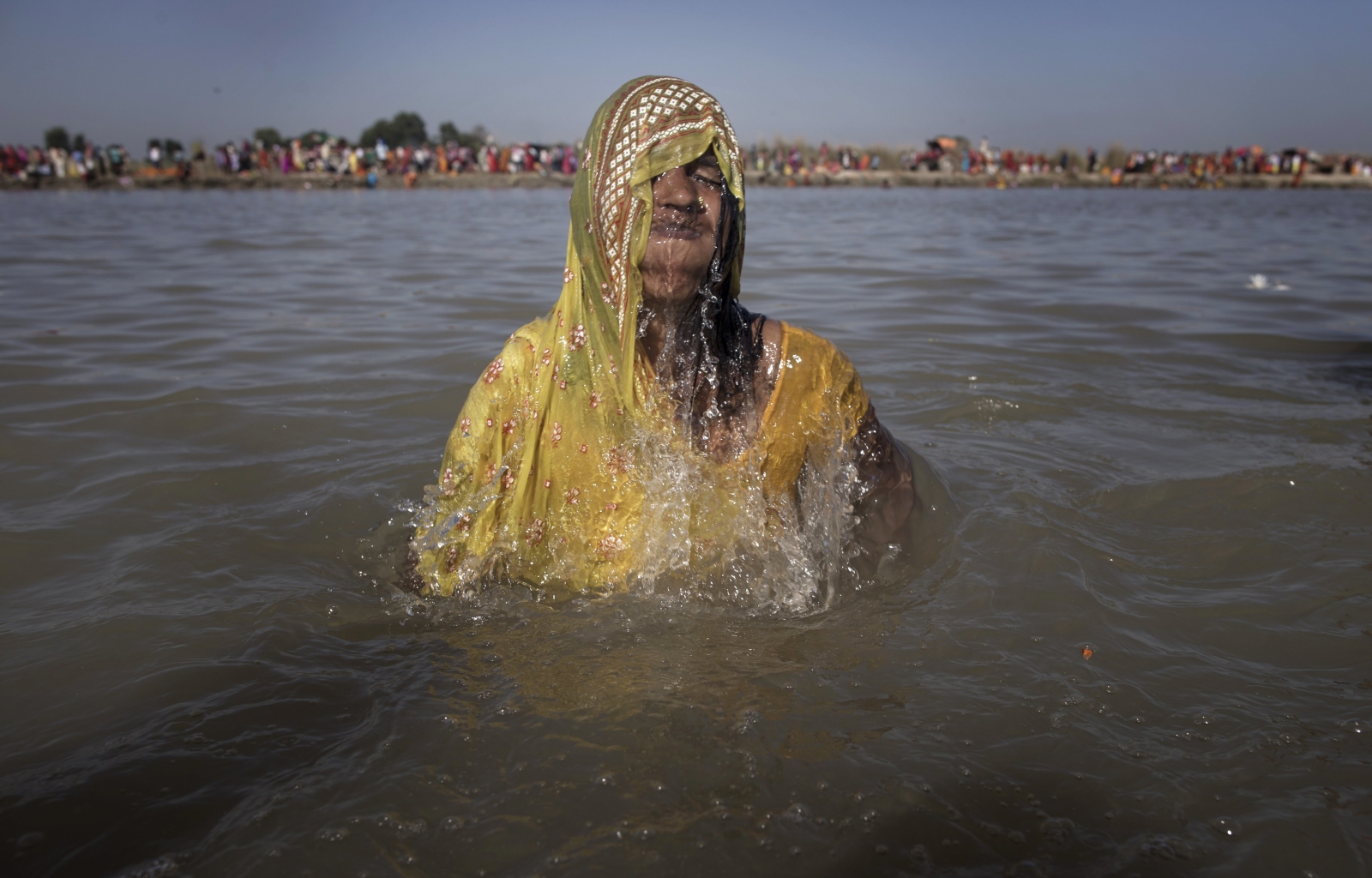
- epa06332575 (18/20) A shaman named Dilip Bhagat (L) grabs a woman by her hair, believing that she is possessed by an evil spirit, as she takes a holy dip during the Ghost Festival at the banks of Kamala River in Dhanusha district, Nepal, 04 November 2017. The beating and the holy dip is believed to help free the woman from the evil spirit. The Ghost Festival is a centuries-old tradition celebrated every year on the full moon day of November. Thousands of people, mostly from Dhanusha District in eastern Nepal and neighboring India and belonging mainly to the lower caste Dalit community, flock to the holy river with deep-rooted, superstitious beliefs that something is wrong within their families or in their business because of evil spirits. Shamans perform rituals in an attempt to heal those believed to be possessed by evil spirits, claiming that only they can expel the unwanted possession. The festival is considered an extreme example of superstition in Nepal. EPA/NARENDRA SHRESTHA ATTENTION: For the full PHOTO ESSAY text please see Advisory Notice epa06332557 Dostawca: PAP/EPA.
- epa06332576 (19/20) A group of women, who believe that they are possessed by evil spirits, dance and chant mantras on a full moon day during the Ghost Festival at the banks of Kamala River in Dhanusha district, Nepal, 04 November 2017. The Ghost Festival is a centuries-old tradition celebrated every year on the full moon day of November. Thousands of people, mostly from Dhanusha District in eastern Nepal and neighboring India and belonging mainly to the lower caste Dalit community, flock to the holy river with deep-rooted, superstitious beliefs that something is wrong within their families or in their business because of evil spirits. Shamans perform rituals in an attempt to heal those believed to be possessed by evil spirits, claiming that only they can expel the unwanted possession. The festival is considered an extreme example of superstition in Nepal. EPA/NARENDRA SHRESTHA ATTENTION: For the full PHOTO ESSAY text please see Advisory Notice epa06332557 Dostawca: PAP/EPA.
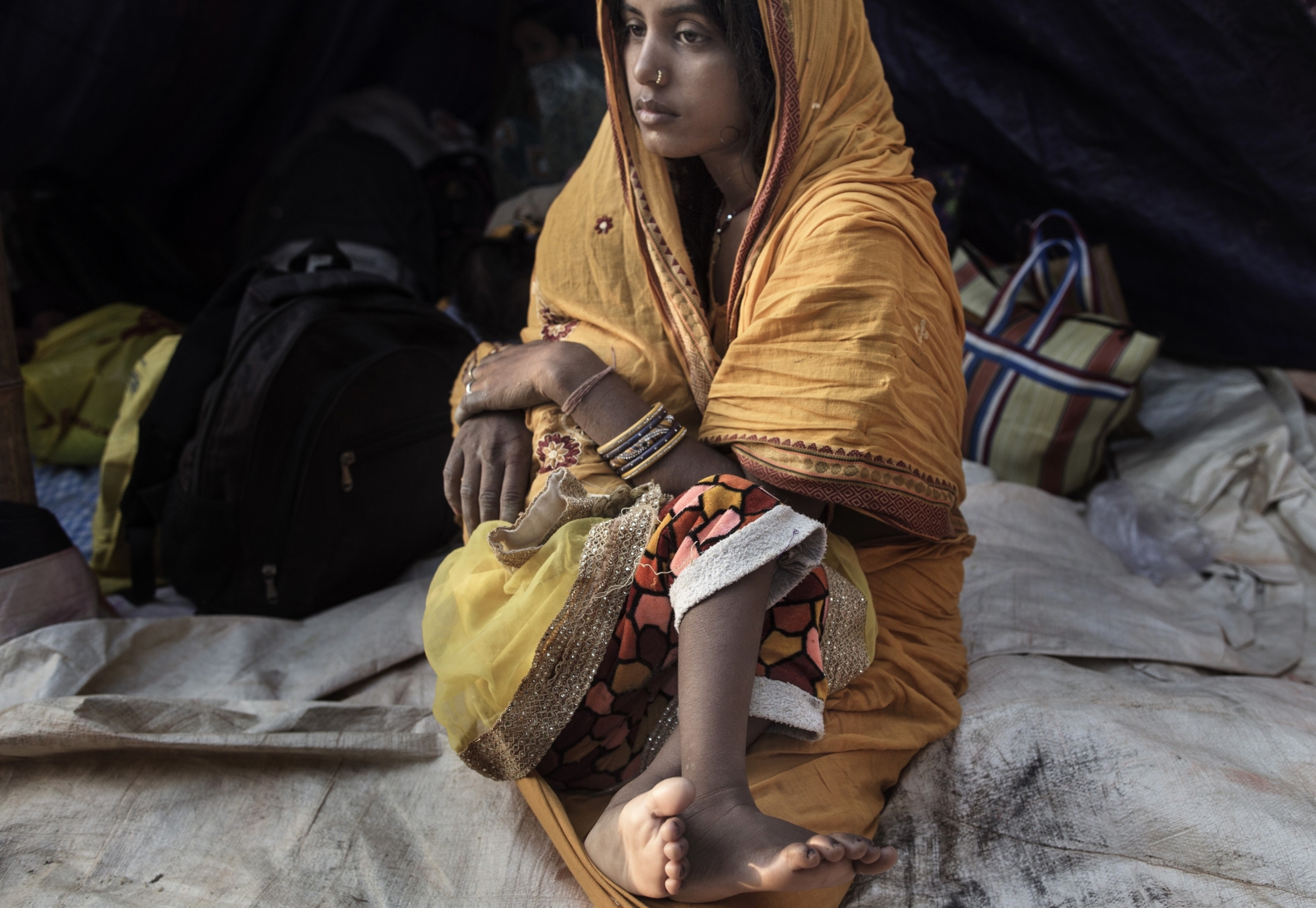









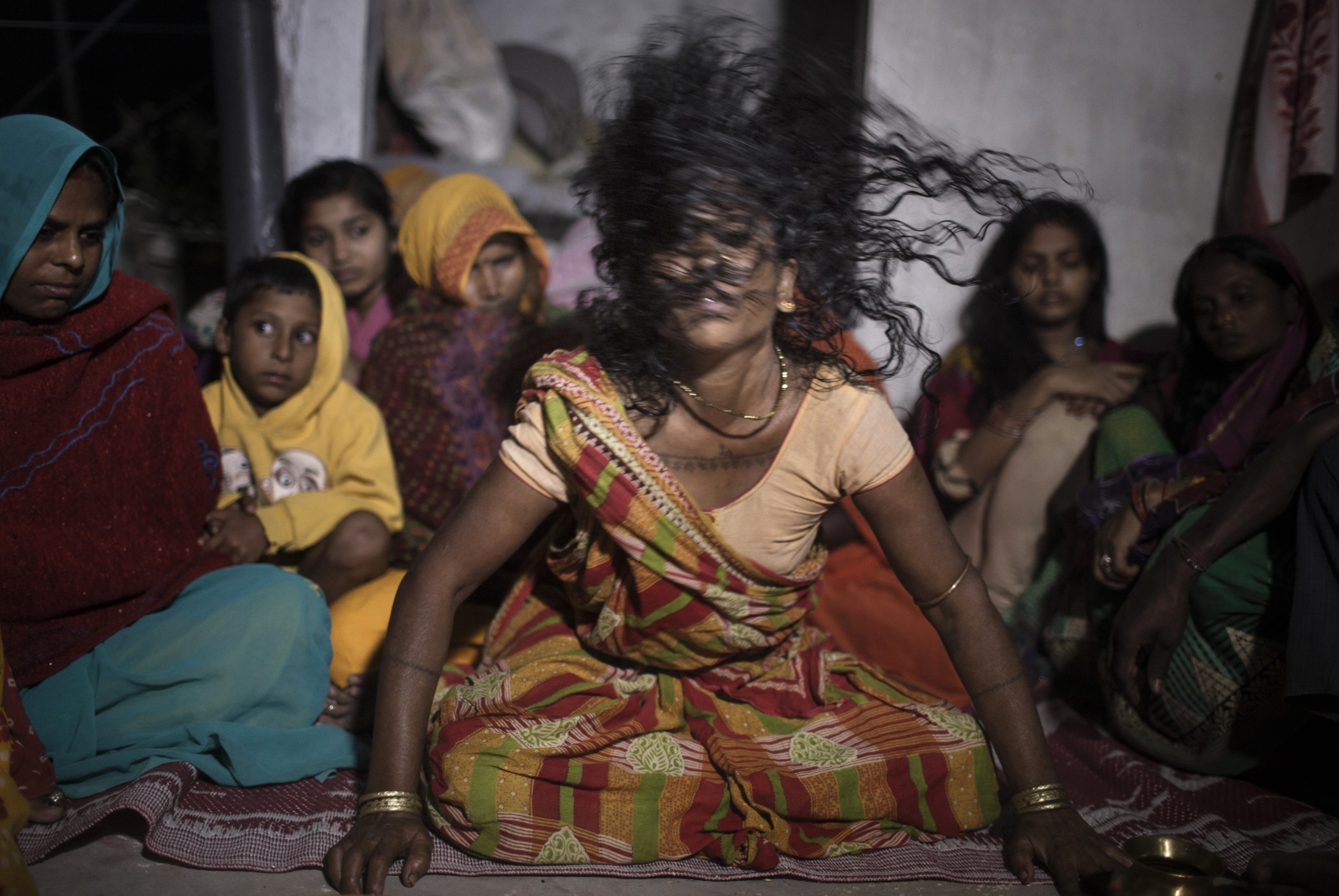
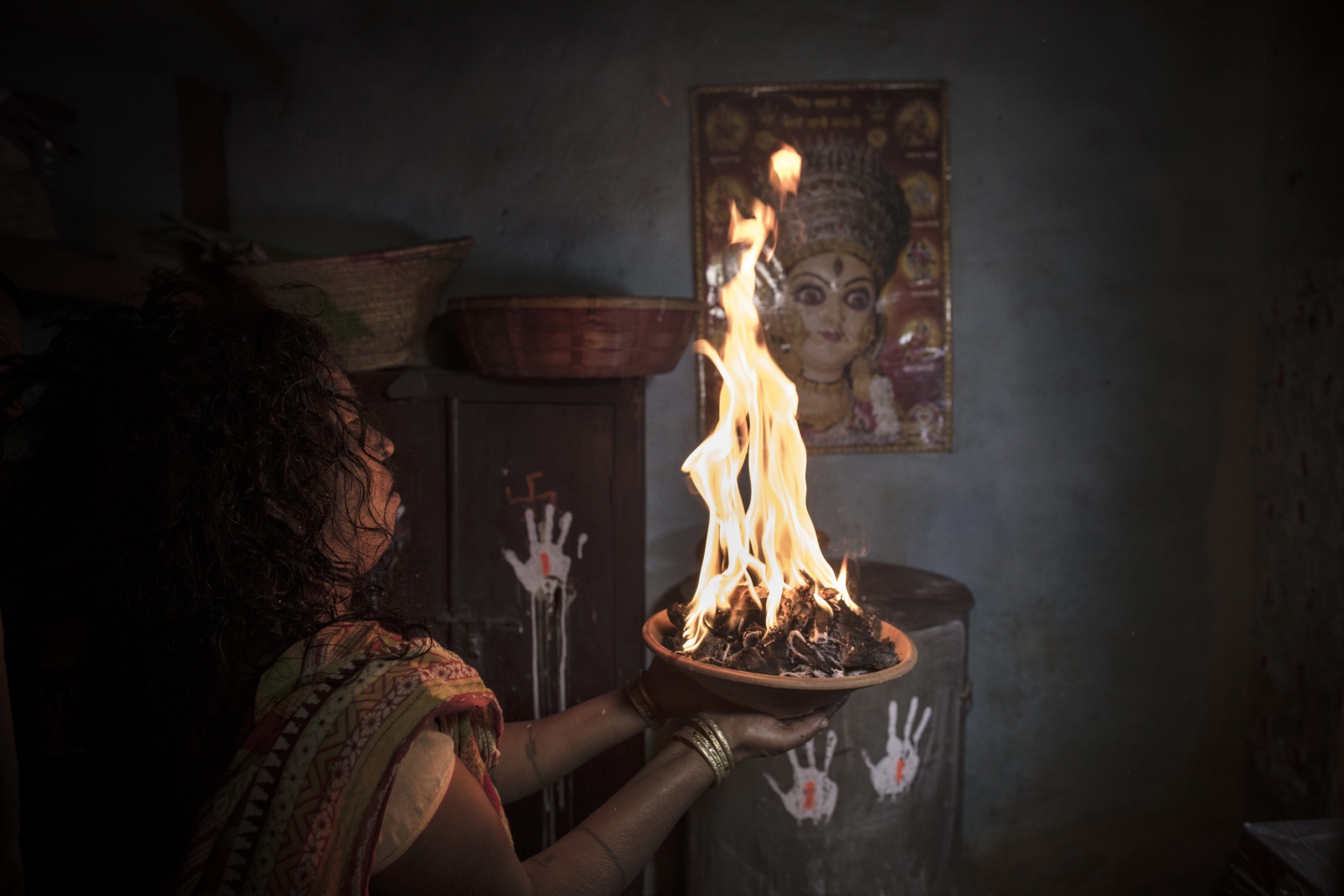
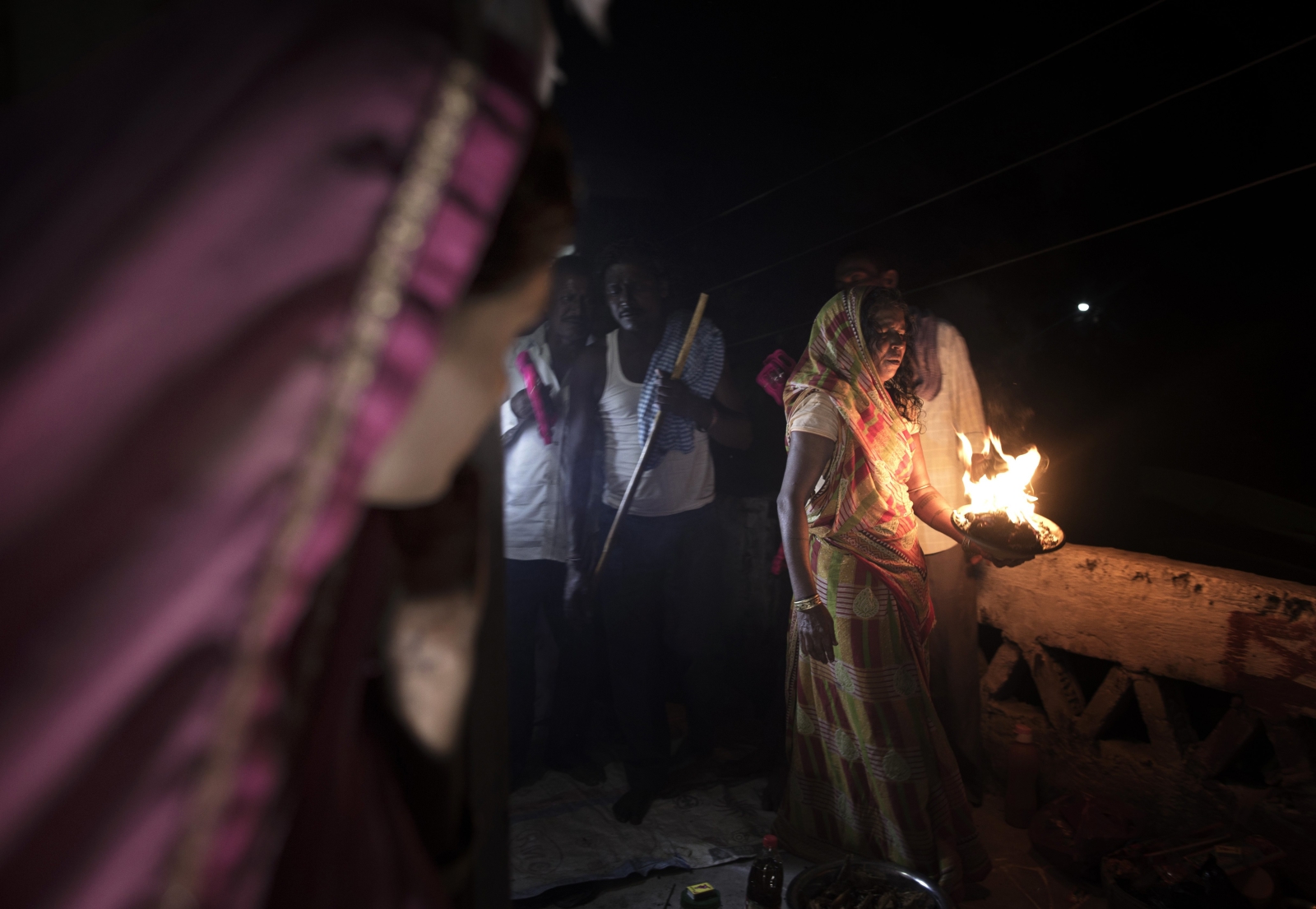


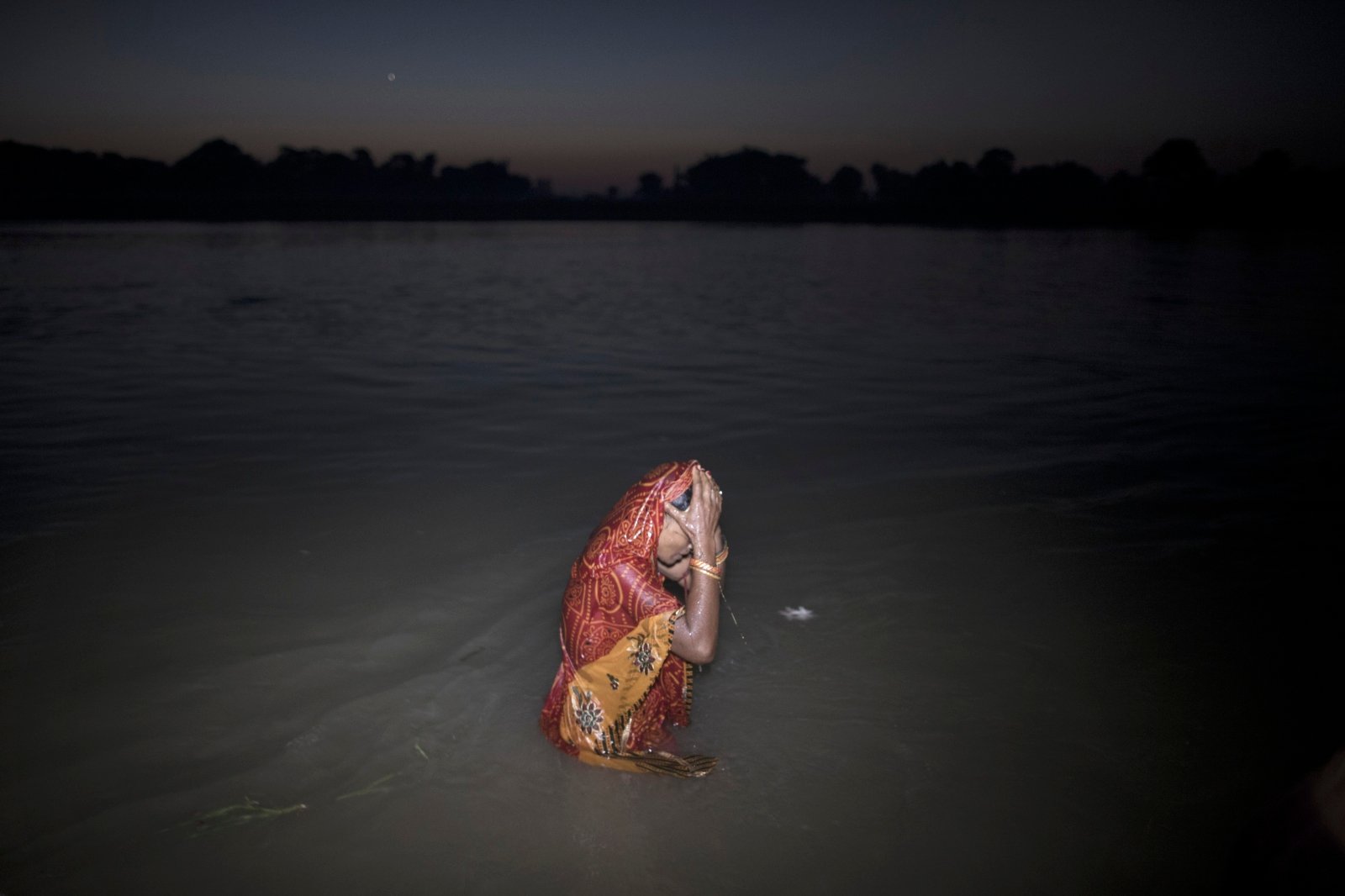
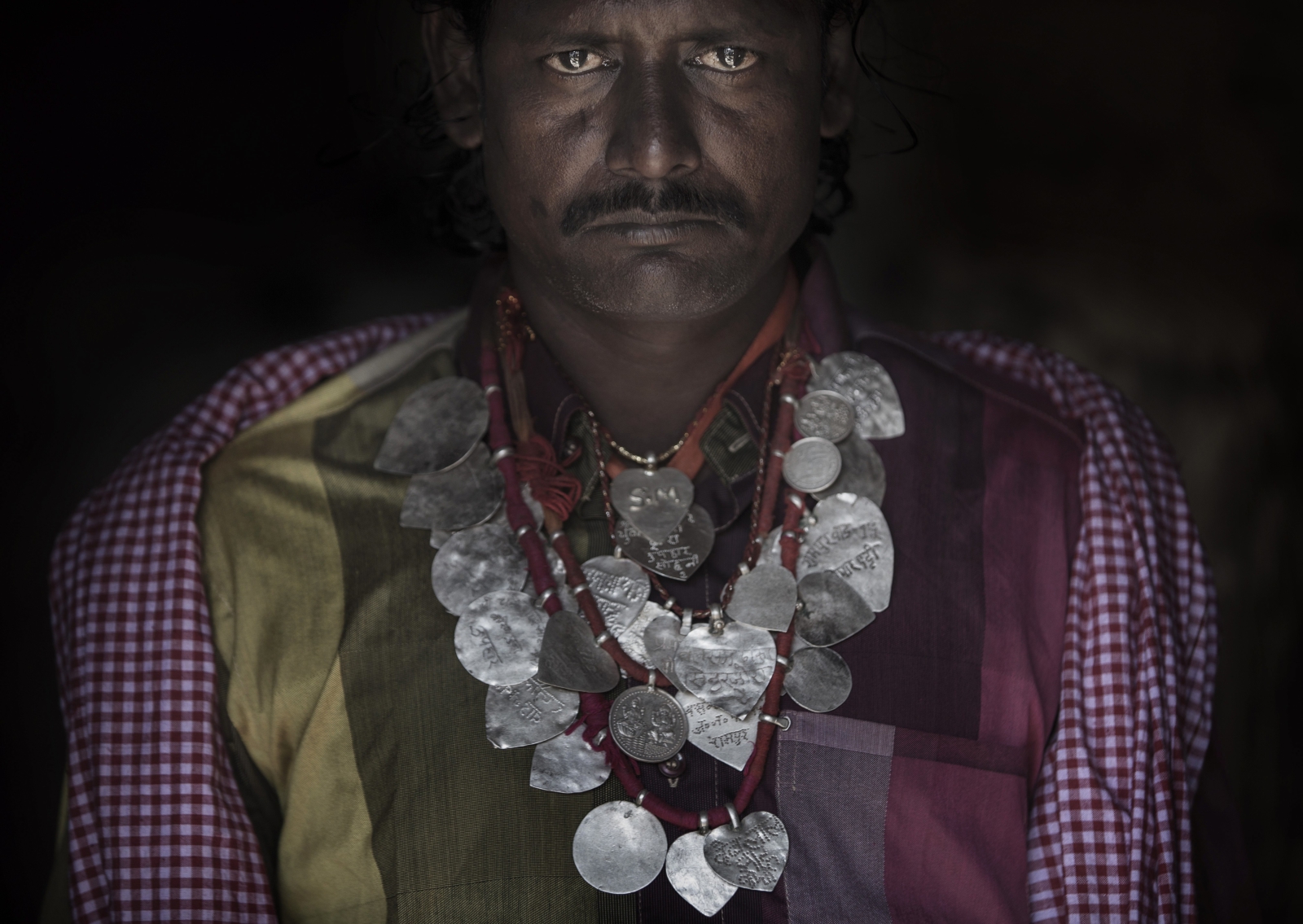
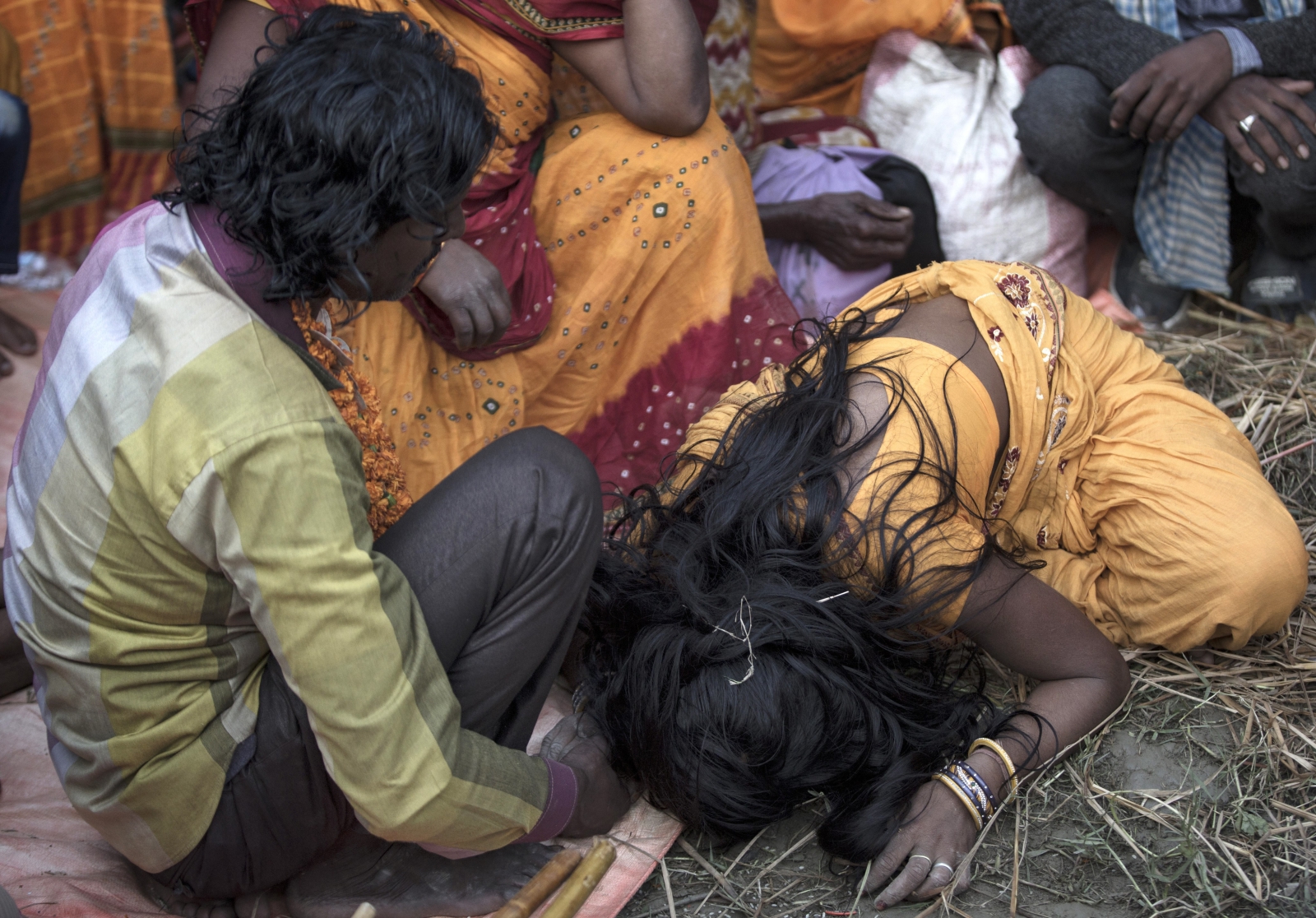
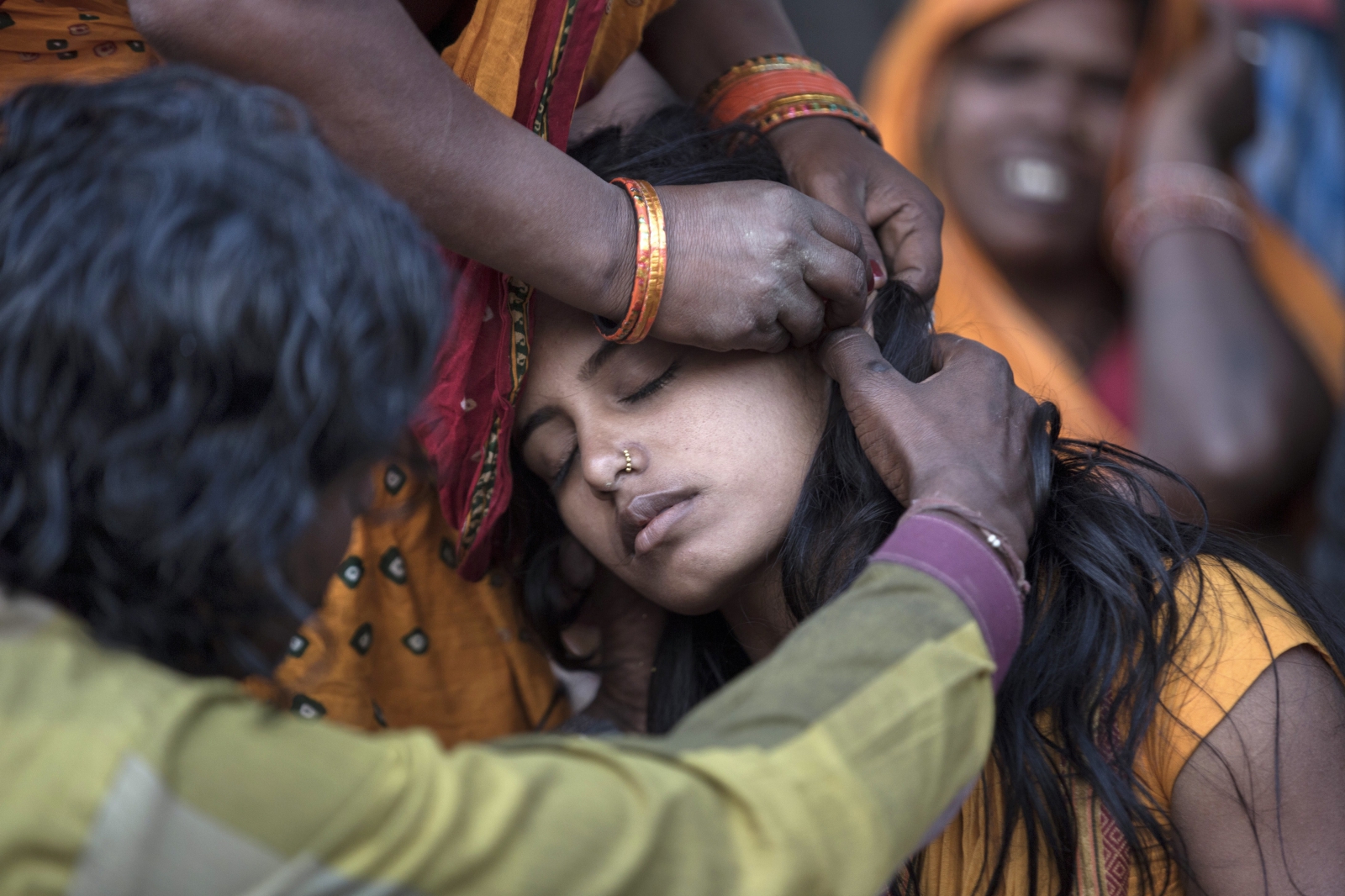
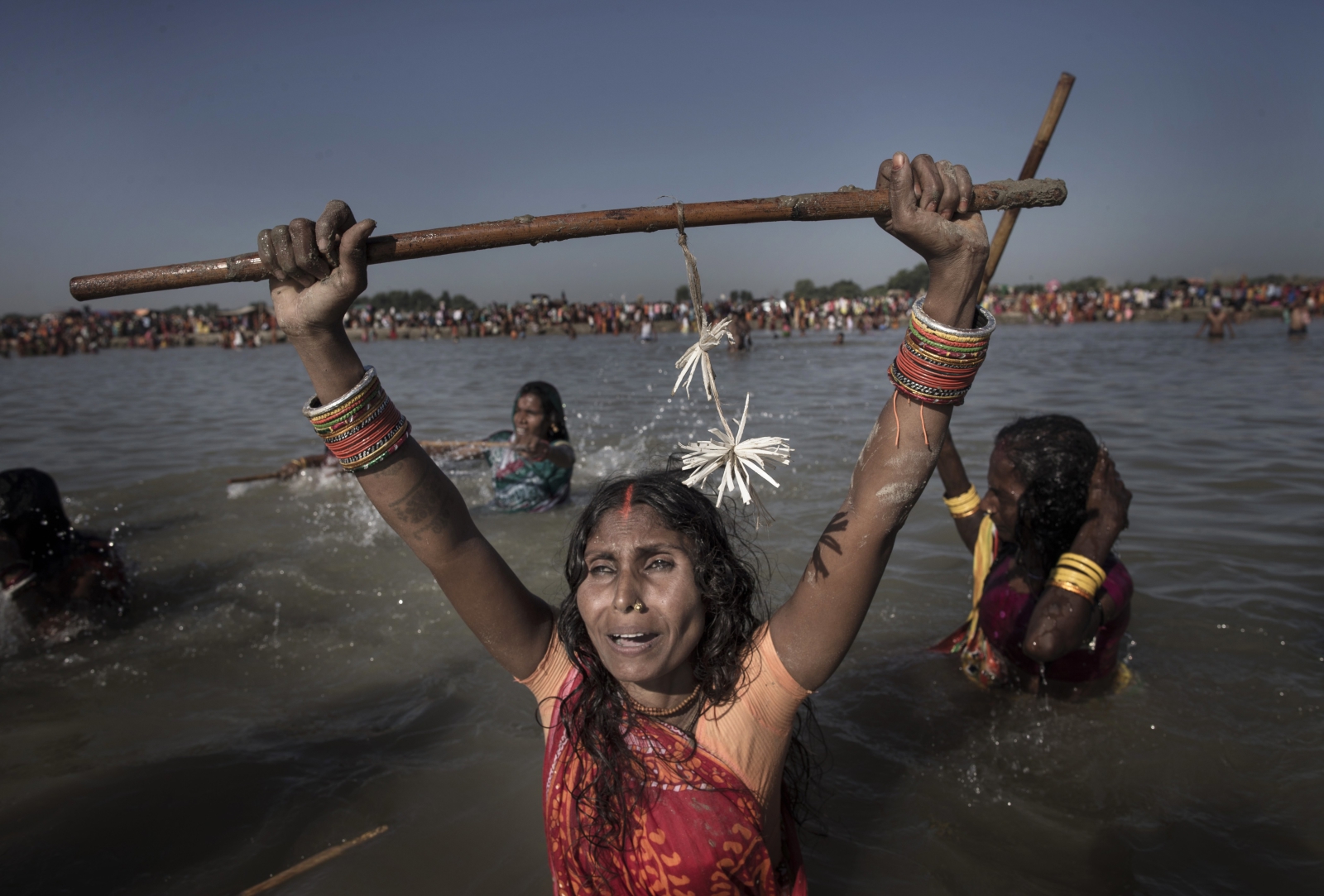
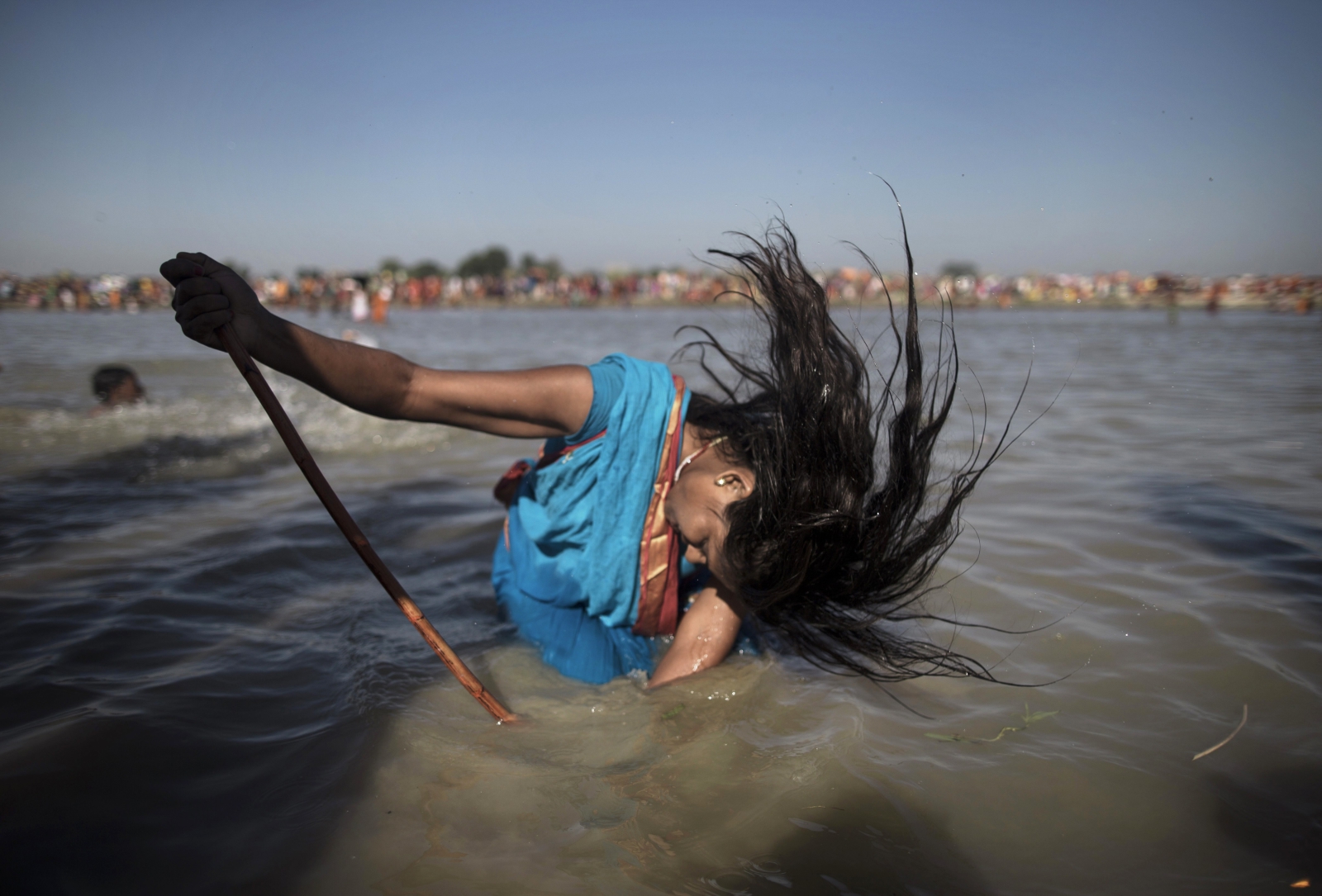
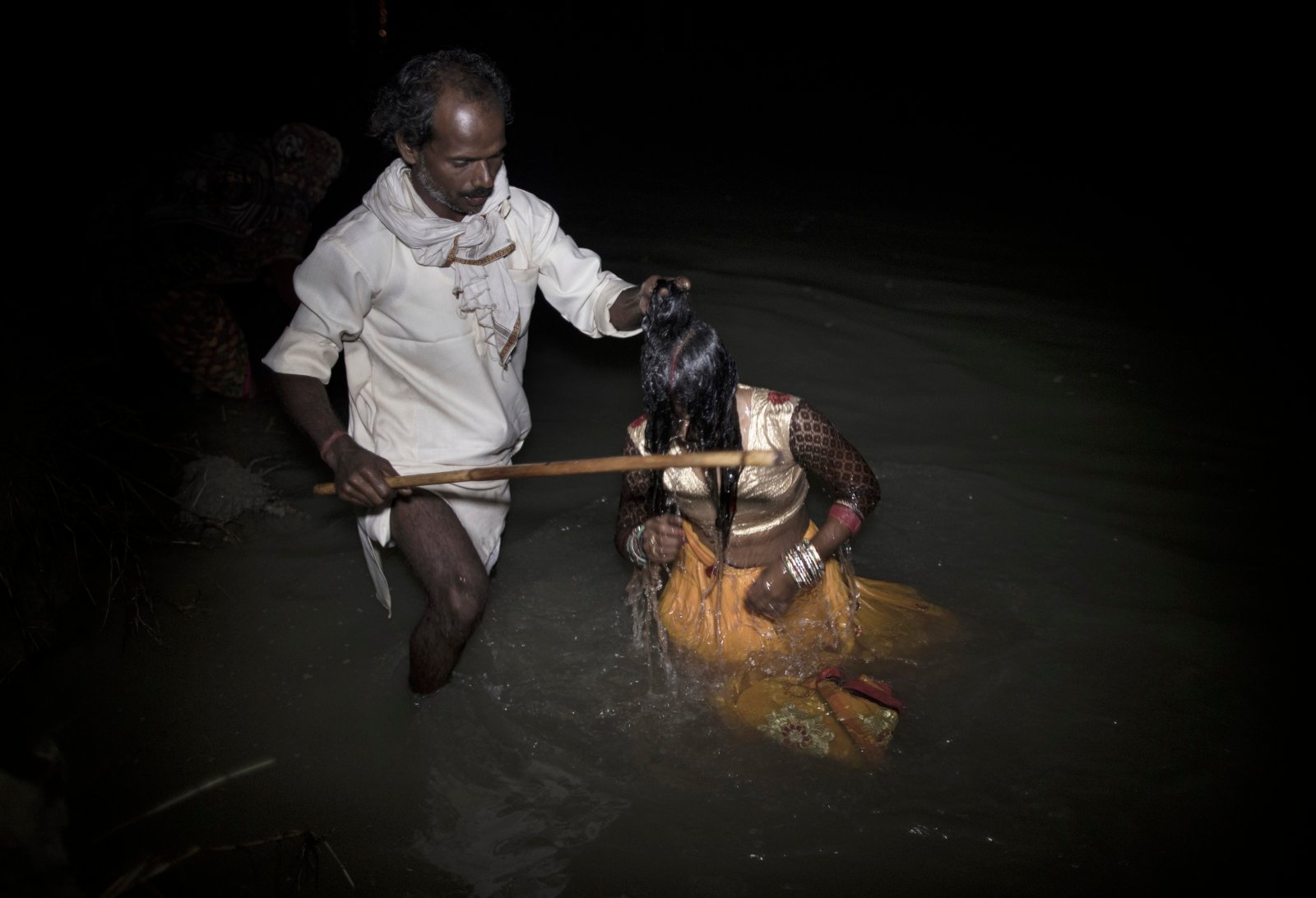
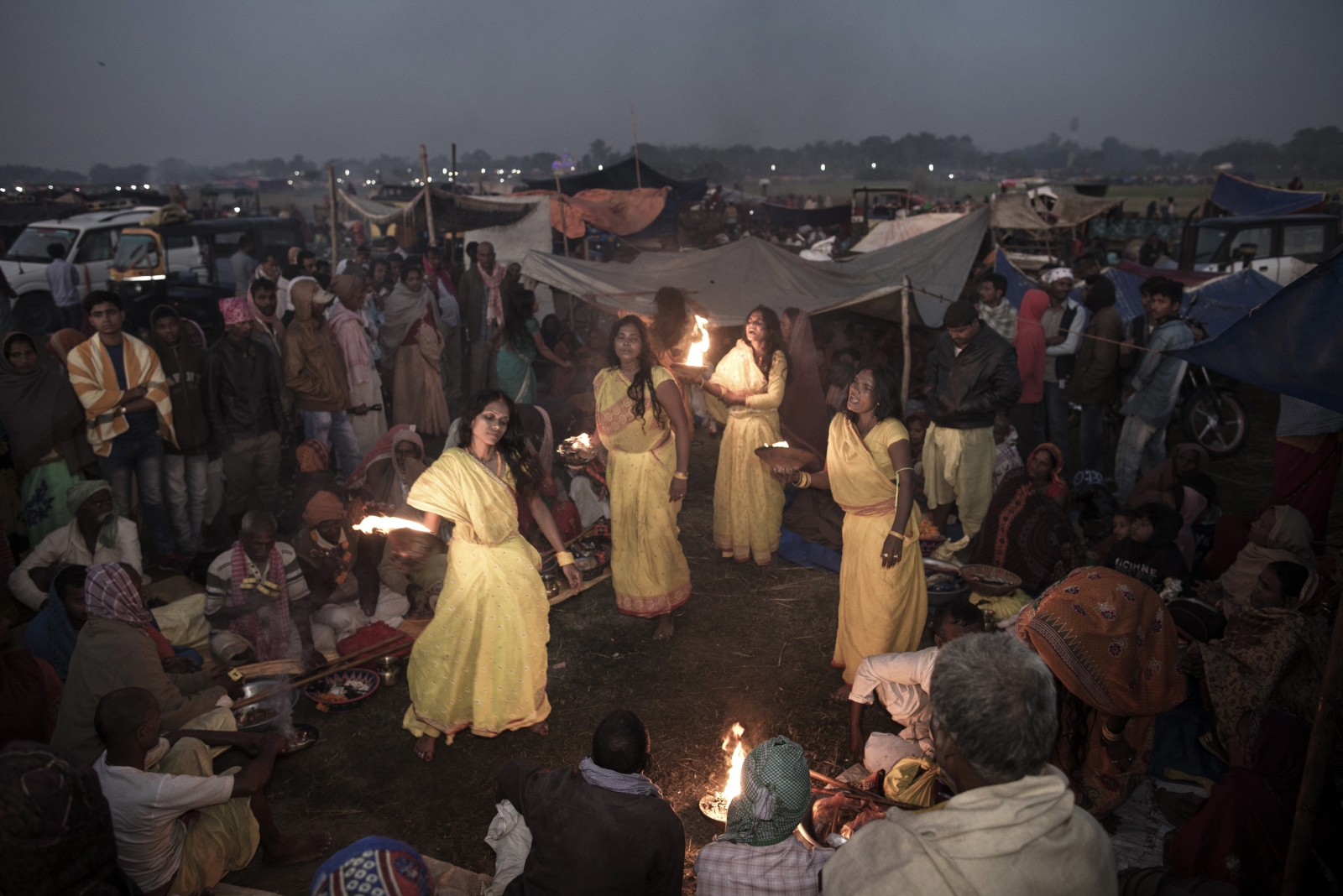
















 Wiadomości
Wiadomości Wideo
Wideo Modlitwy
Modlitwy Sklep
Sklep Kalendarz liturgiczny
Kalendarz liturgiczny